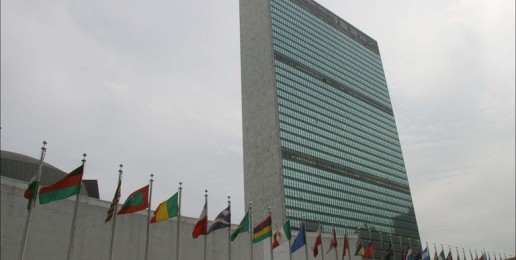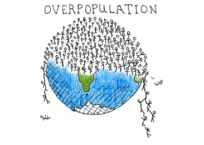
You will be glad to learn that we all have official permission from the UN people-counters to panic about about “overpopulation” – yet again.
The U.N. Population Division apparently decided that its earlier predictions about world population growth were too restrained. So it upped the ante in its 2010 report, revising almost all of its numbers upwards. According to the new numbers, the world’s population will reach 9.3 billion by the time 2050 rolls around – or several hundred million higher than earlier predictions. Not only that, instead of beginning to fall at that point, the UN now claims that the numbers will continue to grow until the end of the century, reaching 10.1 billion in 2100.
But these new predictions fly in the face of all we know about human fertility. It turns out that every last one of the factors affecting fertility – with the sole exception of advances in reproductive technology – are moving in an anti-natal direction. Factors like age at marriage, age at first child-bearing, educational levels, etc., are all tending to lower fertility. Birthrates are falling everywhere, farther and faster than anyone thought possible several decades ago.
The UNDP itself admits that 79 countries, including several dozen in the less developed world, now have fertility rates that are below the level needed to ensure the long-term survival of the population. Most of the rest, everybody except who the UN now seems to know, are likely to cross this demographic fault line over the next few decades.
Whistling in this looming demographic darkness, the UNDP blithely predicts that people in low fertility countries will suddenly become enamored of babies again. You got that right. They predict, without providing a shred of evidence, that birthrates will somehow gravitate to the replacement levels again.
What planet are they living on?
Many of today’s young adults in Europe, Latin America, Asia and elsewhere are too enamored of sex, the city, and the single life to think about marriage, much less about replacing themselves. A single Swedish woman may eventually bear one child as her biological clock approaches midnight, but she is unlikely to bear a second. What was supposed to be the perfect family – a boy for you and a girl for me and heaven help us if we have three – has been scorned by moderns on their way to extinction. The declining number of traditional families has been unable to fill the fertility gap thus created.
The UNDP is supposed to be objective in its predictions, but its latest batch of junk science suggests that it has become anything but. In fact, after the retirement of Director Joseph Chamie, its prognostications seem more and more driven by politics. At the very least, it has produced numbers that tend to show population growth as far more exuberant than it really is.
The reason for this, I fear, is that the UN Population Fund provides part of the UNDP budget – and the UNFPA is first, last, and always a population control group. The UNFPA seems to be using its funding to “leverage” the UNPD into producing numbers that the UNFPA can in turn use to justify the continuation and expansion of population control and abortion.
There is a real population crisis, of course. I am speaking of the crisis of aging and dying populations, for which there seems to be no easy solution. It is a crisis that, by reducing the amount of human capital available, will have a dramatic and negative impact on every aspect of life. Peter Drucker, the late management guru, wrote way back in 1997 that “The dominant factor for business in the next two decades – absent war, pestilence, or collision with a comet – is not going to be economics or technology. It will be demographics.”
Drucker was particularly concerned with the “increasing underpopulation of the developed countries,” but a decade later this reproductive malaise has spread even to the less developed world, and is a truly global phenomenon.
The UN needs to stop spending time, money and resources trying to solve a problem that we’ve never had. Science shows that the world’s population is due to fall dramatically, not rise uncontrollably. To recklessly seek to curb procreation in countries that are, or soon will be, dying will only compound the tragedy.
People are our greatest resource. Everyone, rich or poor, is a unique creation with something priceless to offer to the rest of us.
























